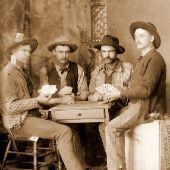- Online Casinos
- Online Betting Sites
- How to Deposit
- Gambling Site Reviews
- Gambling in My Location
 USA
USA- Alabama
- Alaska
- Arkansas
- Arizona
- California
- Colorado
- Connecticut
- Delaware
- Florida
- Georgia
- Hawaii
- Idaho
- Illinois
- Indiana
- Iowa
- Kansas
- Kentucky
- Louisiana
- Maine
- Maryland
- Massachusetts
- Michigan
- Minnesota
- Mississippi
- Missouri
- Montana
- Nebraska
- Nevada
- New Hampshire
- New Mexico
- New York
- North Carolina
- North Dakota
- Ohio
- Oklahoma
- Oregon
- Pennsylvania
- Rhode Island
- South Carolina
- South Dakota
- Tennessee
- Texas
- Utah
- Vermont
- Virginia
- Washington
- Wisconsin
- Wyoming
 Canada
Canada Australia
Australia UK
UK
- Casino of the Month
Betting Syndicates Explained for Beginners
If you’ve ever wondered what betting syndicates are or how they work, you’re not alone. A betting syndicate is a group that pools money and expertise to place coordinated wagers for shared results.
This guide explains how syndicate betting works, why groups form, who participates, common legal considerations, and how new bettors can start or join a syndicate responsibly.
Recommended By GamblingSites.com
This score goes to the highest rated sites by experts. Only sites that hold an expert rating of above 85% are given this status.
A green Jackpot Certified score is awarded when at least 60% of expert reviews are positive.
A red Bust score is displayed when less than 60% of expert reviews are positive.
A grayed-out gem means there are not enough expert ratings to produce a score. The gambling site could be new.
A green Jackpot Certified score means that at least 60% of player reviews are positive.
A red Bust score means that less that 59% or less of player reviews are positive.
A grayed-out face means there are not enough player reviews to produce a score.
What Is a Betting Syndicate?
Betting syndicates combine teamwork, bankroll pooling, and shared expertise in ways that individual bettors cannot match. Understanding these basics offers helpful context before learning how different types of syndicates operate.
Syndicate Betting Meaning and Definition
A betting syndicate is a coordinated group of bettors who combine funds, research, and analysis to place wagers as a team. Each member contributes skills or capital, and the syndicate follows a structured strategy designed to improve long-term performance. The phrase syndicate betting simply refers to this shared, organized approach to wagering.
How Syndicate Betting Differs from Individual Betting
Syndicate betting and individual betting operate very differently. The table below offers a clear comparison.
| Feature | Syndicate Betting | Individual Betting |
|---|---|---|
| Bankroll Strength | Uses pooled funds that allow larger or more strategic wagers | Limited to a single bettor’s budget |
| Research Capability | Members share research, data modeling, and analysis | One person gathers all information alone |
| Risk Distribution | Losses are shared proportionally among members | One bettor absorbs all financial risk |
| Decision Process | Guided by group rules and coordinated strategy | Based entirely on personal choices |
Common Misconceptions About Betting Syndicates
- They’re all illegal
- They guarantee profit
- They rely on secret formulas
Many assume all syndicates are illegal, but many operate legally within licensed betting markets. Some believe syndicates guarantee profits, although even professional groups face losing streaks. Others imagine syndicates rely on secret formulas, when most rely on structured teamwork, consistent research, and clear rules.
Types of Betting Syndicates
There are actually several different types of betting syndicates, too. Here’s a quick look at them all:
- Professional syndicates staffed with analysts, traders, and investors
- Casual groups of friends or hobbyists who pool a smaller fund
- Sports-focused syndicates centered on football, basketball, or international markets
- Horse racing syndicates often built around handicapping and pooled ownership
- Data-driven syndicates that rely on predictive modeling and statistical tools
How Do Betting Syndicates Work?
To understand syndicate betting, it helps to look at the systems that support consistent, organized wagering. Most syndicates follow structured processes that guide bankroll use, research, and strategy.

Pooling Resources and Shared Bankrolls
Members contribute funds to a shared bankroll that finances all wagers. This allows the group to place higher-value bets and operate across multiple sports or markets.

Collective Decision-Making and Strategy Development
Each member plays a role in research or analysis. Analysts present insights, strategists evaluate options, and designated bettors place wagers. Decisions follow group rules rather than individual preferences.

Distribution of Winnings and Losses
Payouts are typically divided according to contribution or a preset ownership structure. Groups maintain transparent records so everyone understands how money moves in and out of the bankroll.

Bankroll Limits and Risk Management Practices
Strong syndicates rely on strict staking rules, maximum bet thresholds, and predefined limits for risk. These safeguards help protect long-term profitability.
What Do Betting Syndicates Do?
Betting syndicates rely on systems that help them identify value and manage risk. Their workflow resembles that of a trading desk more than a casual bettor.
Bet Timing, Market Inefficiencies, and Line Movement
Many syndicates place bets early when odds are less efficient. Others wait for public money to influence lines before entering. Monitoring line movement helps syndicates identify opportunities that single bettors often miss.
Risk Management in High-Volume or Multi-Sport Betting
High-volume wagering requires careful exposure management. Syndicates distribute bets across leagues, events, and risk levels to stabilize long-term performance and protect capital.
Are Betting Syndicates Legal?
The legality of syndicate betting depends on location and behavior. Understanding regional rules helps members operate responsibly and avoid common pitfalls.
Legality by Jurisdiction
| Region | General Legality | Notes |
|---|---|---|
| United States | Mixed by state | Legal if placed through licensed books and no shared accounts are used |
| United Kingdom | Legal | Syndicates operate openly under regulated gambling laws |
| European Union | Varies | Some countries require registration or reporting |
| Offshore / Unregulated Areas | Risky | May violate financial or gambling regulations |
Key Legal Risks and Regulatory Issues
Legal issues typically arise from account sharing, false identities, or unlicensed betting. Syndicates must follow KYC rules, maintain accurate documentation, and ensure every member places bets from approved, verified accounts.
Responsible Gambling and Transparency Best Practices
Healthy syndicates maintain detailed records of contributions, bets, and payouts. Clear rules around stakes, losses, and payouts protect the group from misunderstandings. All members should meet legal gambling age and follow agreed standards for responsible participation. For more gambling tips, make sure you understand smart wagering habits with our guide to sports betting tips.
Betting Syndicate Jobs and Roles
Professional or large-scale syndicates often function like specialized teams, with each member supporting the group’s performance.
Common Roles in Syndicate Betting Operations
There are many roles within betting syndicates. Here are the most common ones you’ll come across:
- Analysts: Gather statistics, review past performance, and identify value across betting markets
- Runners: Place bets at various sportsbooks based on instructions
- Traders: Monitor live markets and adjust positions as odds shift
- Modelers: Build predictive tools that help estimate probabilities
- Coordinators: Manage communication, maintain logs, and ensure accurate record keeping
Compensation Structures and How Members Are Paid
Some syndicate members earn salaries, others receive profit shares, and some earn performance-based bonuses. Casual groups typically distribute profits based on each member’s share of the bankroll.
Skills and Qualifications Needed to Work in a Betting Syndicate
Useful skills include statistical knowledge, research ability, attention to detail, and calm decision-making. Technical capabilities such as data modeling or coding provide an advantage.
How to Start a Betting Syndicate
Launching a syndicate requires trust, organization, and a clear structure. Small groups often start informally before expanding.

Many syndicates begin with a few friends pooling funds to test strategies. Starting small allows the group to develop habits and assess how well members collaborate.

A written agreement outlines contributions, responsibilities, and distribution rules. Shared dashboards or spreadsheets help track every wager, deposit, and payout.

Every member must place wagers legally from accounts registered in their own name. Respecting local licensing rules and KYC standards protects the group.

Membership varies by group. Some seek members with analysis or technical skills while others value reliability and consistent contributions.
Betting Syndicate FAQs
Can a syndicate include members from different countries?
Yes, as long as each member follows local gambling laws and uses their own verified accounts.
Do betting syndicates guarantee profits?
No. Even advanced groups experience losses. Their goal is to improve long-term performance through teamwork and structure.
Is joining a syndicate expensive?
Some require large buy-ins, but many casual groups start with small shared contributions.
Do beginners have a place in a syndicate?
Yes, especially in groups that value steady participation and clear communication.
Understanding How Betting Syndicates Work
Betting syndicates combine pooled funds, research, and organized decision-making to pursue long-term success. This guide covered what syndicates are, how syndicate betting works, legality, roles, and how to start or join a group responsibly.
If you’re new to wagering, start with our complete introduction to sports betting to learn the basics before exploring syndicate strategies.
This score goes to the highest rated sites by experts. Only sites that hold an expert rating of above 85% are given this status.
A green Jackpot Certified score is awarded when at least 60% of expert reviews are positive.
A red Bust score is displayed when less than 60% of expert reviews are positive.
A grayed-out gem means there are not enough expert ratings to produce a score. The gambling site could be new.
A green Jackpot Certified score means that at least 60% of player reviews are positive.
A red Bust score means that less that 59% or less of player reviews are positive.
A grayed-out face means there are not enough player reviews to produce a score.
 80%
80% 75%
75%
